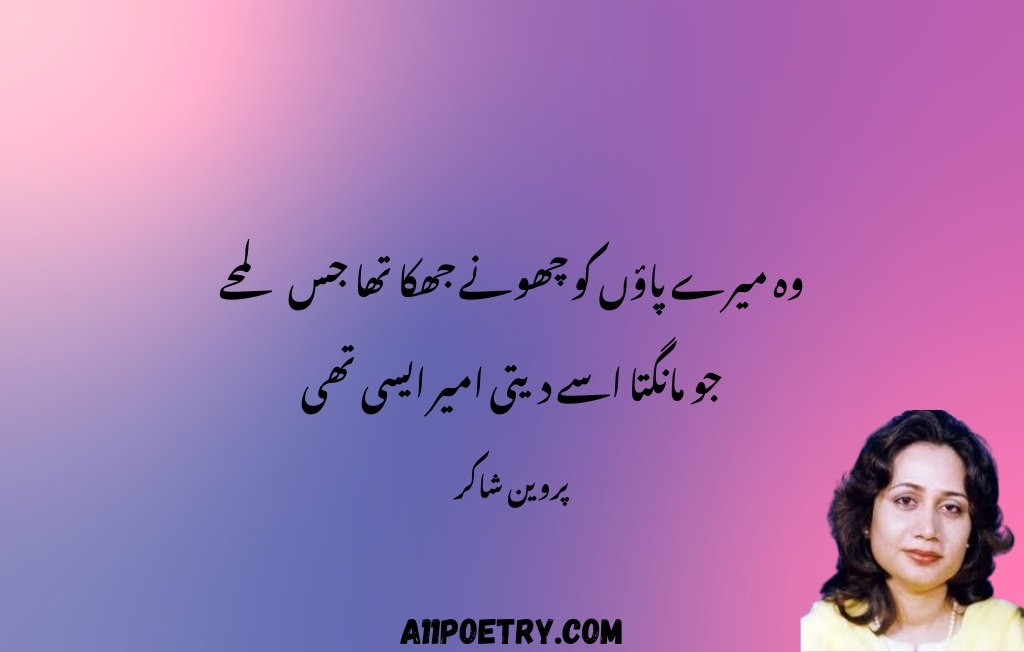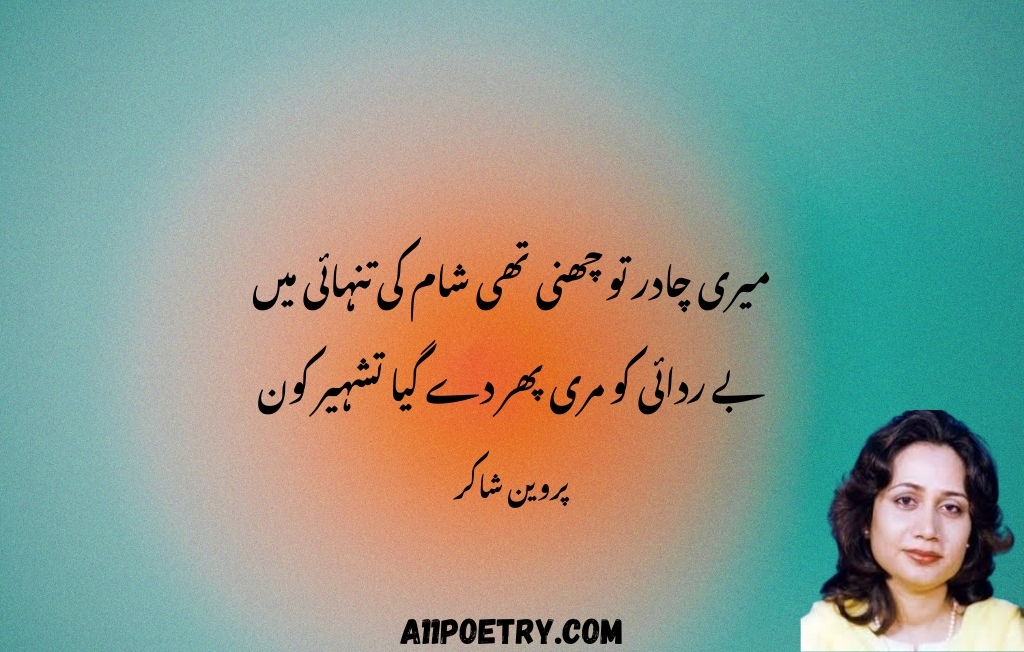
Parveen Shakir, a distinguished name in Urdu literature, has left an indelible mark on poetry through her ability to weave emotions into words. Among her many literary contributions, her two-line love poetry stands out for its ability to convey deep emotions in a concise format. These short yet profound couplets, known as sher in Urdu, encapsulate the essence of love, longing, and heartbreak with a mastery that continues to resonate with readers today.
The Art of Two-Line Poetry
The two-line poetry of Parveen Shakir is a perfect example of how brevity can be powerful. In just a couple of lines, she captures the complexity of emotions, from the euphoria of love to the despair of separation. Her poetry often combines simplicity with a profound depth that leaves readers reflecting on her words long after they’ve been read. Shakir’s ability to infuse her personal experiences and a distinctly feminine perspective into her couplets adds a unique dimension to her work.
One of the most remarkable features of her poetry is her use of metaphors and imagery. She frequently draws on elements of nature, such as flowers, fragrance, rain, and the moon, to symbolize love and its myriad facets. For instance:
“Wo to khushbu hai, hawaaon mein bikhar jaayega,
Masla phool ka hai, phool kidhar jaayega.”
In this couplet, she contrasts the transient yet omnipresent nature of fragrance with the tangible vulnerability of a flower, beautifully symbolizing the fragility and ephemerality of love.
A Feminine Voice in Love Poetry
Parveen Shakir’s poetry stands out for its authentic portrayal of feminine emotions. At a time when much of Urdu poetry was dominated by male voices, she brought a refreshing perspective that highlighted the experiences and feelings of women in love. Her couplets often explore the nuances of love from a woman’s point of view, making her work relatable and deeply moving for readers across genders.
Her two-line poetry frequently delves into the themes of self-respect, longing, and the delicate balance between vulnerability and strength in relationships. For example:
“Tere qareeb aa ke mujhe sukoon mil gaya,
Magar tere sukoon ka ab kya bana?”
Here, Shakir portrays the bittersweet nature of love, where closeness brings comfort, yet the cost of that comfort remains a poignant question.
Themes in Parveen Shakir’s Two-Line Poetry
-
Love and Longing: Parveen Shakir’s couplets often dwell on the themes of unfulfilled love and the yearning that accompanies it. Her poetry expresses the beauty of longing and the pain of separation with equal intensity. For instance:
“Us ne barson ke baad dekha hai,
Phir koi lafz lab hilaa hi nahin.”
This couplet captures the overwhelming emotions that silence the heart when meeting a long-lost love.
-
The Ephemeral Nature of Love: Shakir’s poetry often reflects on the transient nature of love, likening it to fleeting moments in nature. Her words remind us of the impermanence of emotions, yet celebrate their beauty.
-
Empowerment in Love: Unlike traditional depictions of women in love poetry, Shakir’s couplets emphasize self-respect and inner strength. She does not shy away from highlighting the struggles and dilemmas faced by women in love, offering a voice that is both tender and assertive.
-
Nature as a Metaphor: Her poetry frequently employs metaphors from nature to articulate feelings. The rain often symbolizes renewal, flowers represent fragility, and the moon reflects the beauty of a lover’s face. These elements make her poetry visually evocative and emotionally resonant.


















































